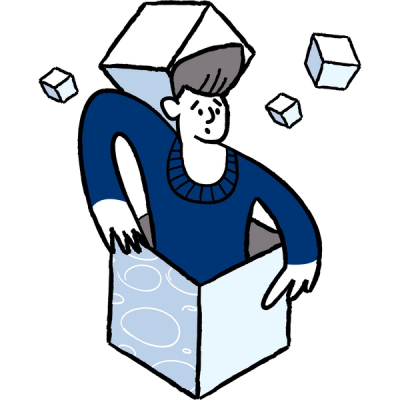Signs and effects of problem gambling
Gambling can start off feeling like just a bit of fun or a way to escape stress, but over time, it can become harder to control. If you’re starting to wonder whether gambling might be affecting your life, you're not alone, and it's okay to ask these questions.
How do I know if gambling is becoming a problem
Everyone’s experience is different, but here are some signs that gambling might be getting in the way of your wellbeing:
- Spending more time or money on gambling than you planned
- Trying to win back your losses (‘chasing losses’)
- Thinking about gambling daily or feeling restless when you’re not gambling
- Missing out on important moments like time with loved ones, work, or social events because of gambling
- Feeling guilt, shame, or regret after gambling
- Arguing with people you care about over gambling
- Hiding your gambling or lying about how much you spend
- Borrowing money or selling things to gamble
- Feeling stressed about debt, bills, or financial security
- Noticing changes in your mood, sleep, or overall mental wellbeing.
If any of this sounds familiar, you’re not alone, and it’s not your fault. Gambling is designed to be exciting and rewarding, which makes it easy to get hooked.
The highs and lows can affect your brain in powerful ways, making it hard to stop even when you want to. Some people might even develop an addiction.
“I started gambling when I was young, playing poker machines for 20 years. That was why I became homeless - I gambled all my money away.”
How gambling can affect your life
When gambling becomes a problem, it can have a ripple effect across many parts of your life.
Some of the impacts can include:
- Financial stress: Falling behind on bills, debt, or not having enough for essentials. You may even experience homelessness.
- Relationship problems: Arguments, loss of trust, or feeling distant from loved ones
- Work and study issues: Trouble focusing, missing days, or losing motivation
- Emotional wellbeing: Increased feelings of distress, hopelessness, or feelings of anxiety
- Family life: Less time, energy, or presence for your kids or partner
- Feeling out of control: Even when you want to stop, it can feel impossible.
The effects of gambling can be heavy, but you don’t have to carry them alone. Understanding what’s happening is a powerful first step toward change.
You don’t have to figure it out all at once. Whether you're ready to make changes now or just exploring what’s possible, there are support services and self-help tools that can walk alongside you.
Click here to download, save, or print our problem gambling fact sheet.





